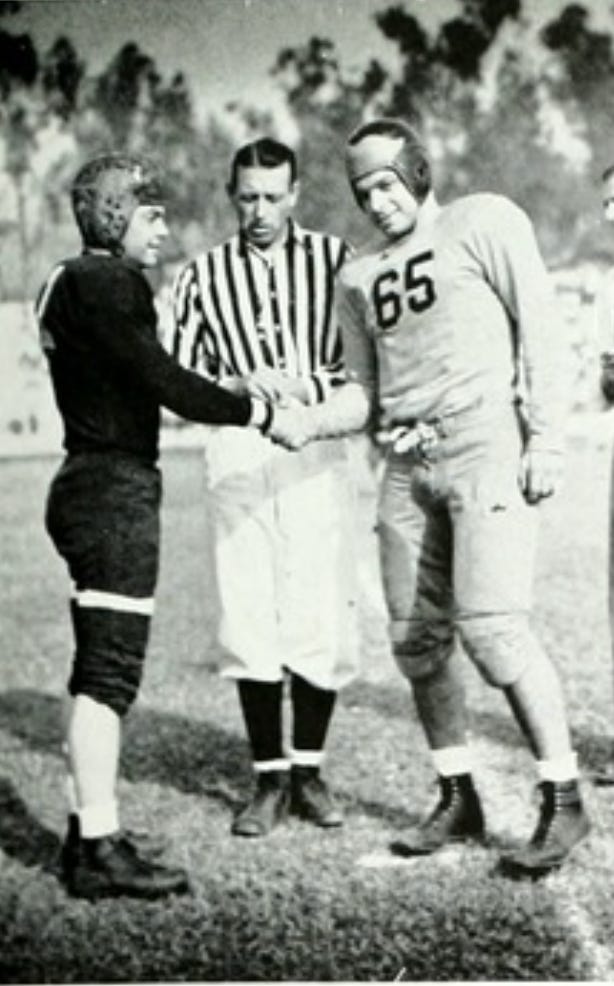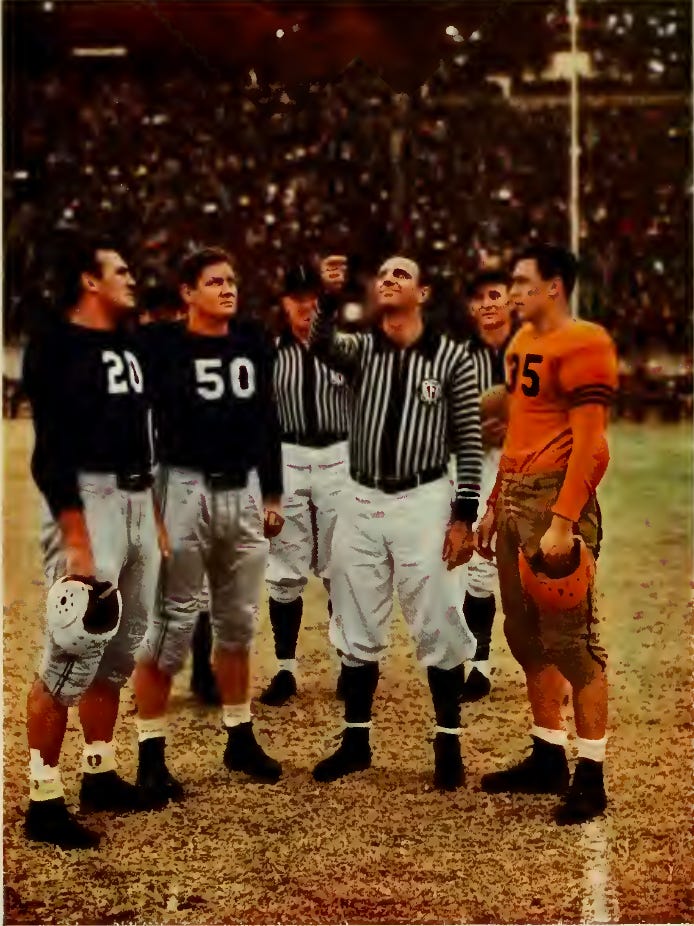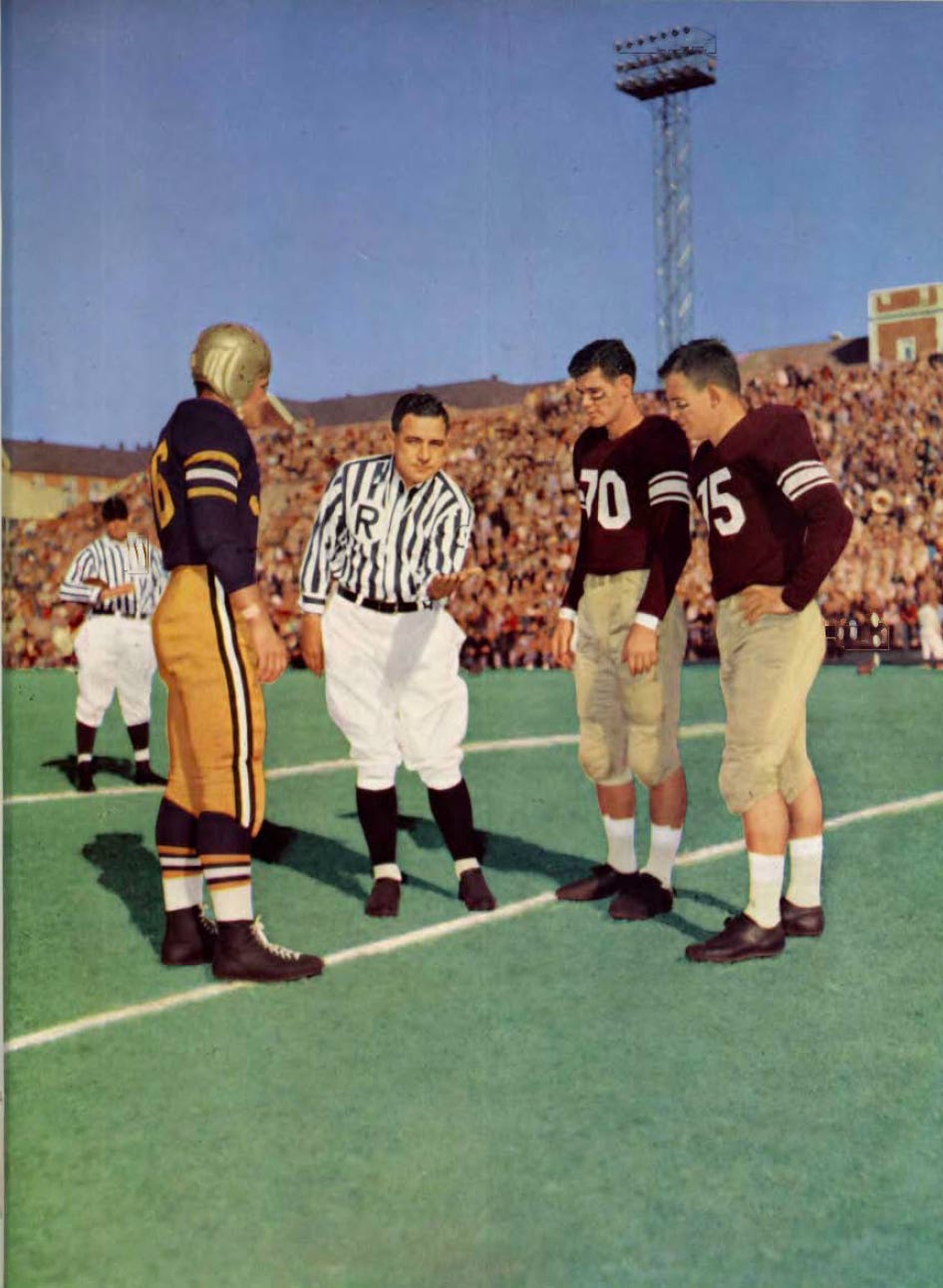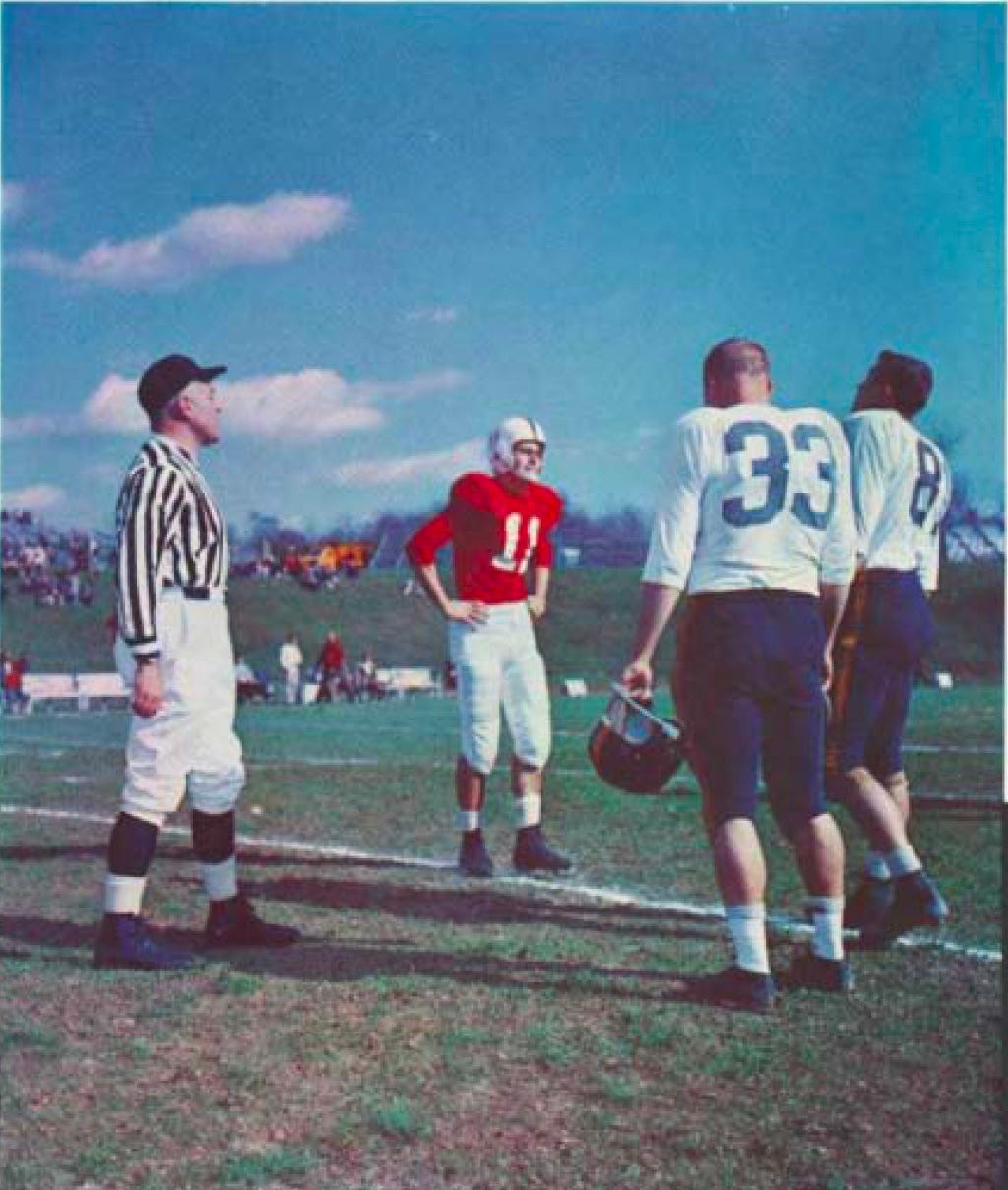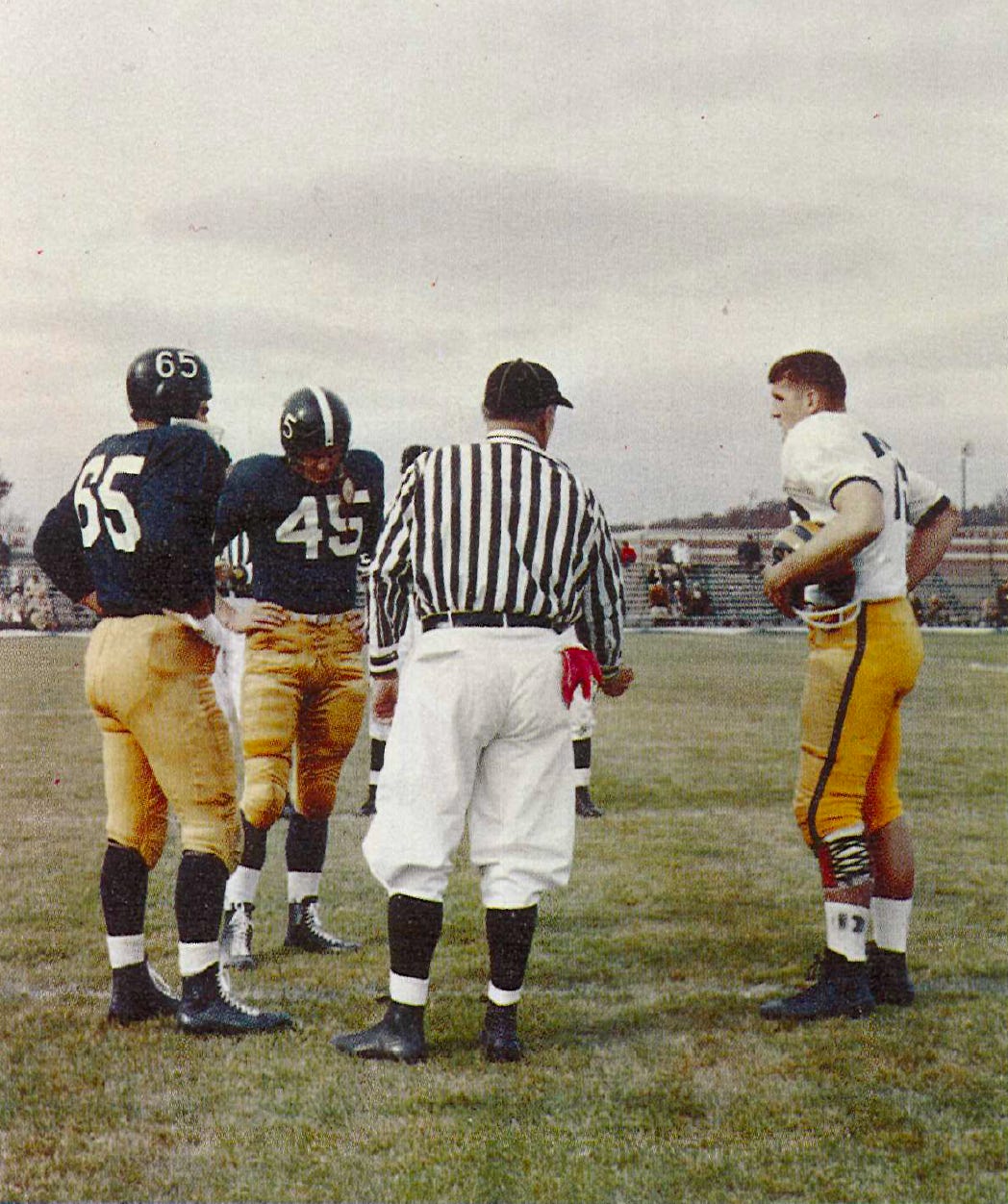Today's Tidbit... 1876 IFA Rule #39: Toss Up
This is #39 in a series covering football's original 61 rules adopted by the Intercollegiate Football Association in 1876. We review one rule each Friday.
The toss up was a crucial element of early football games and warranted its own rule.
Rule 39: The captains of the respective sides will toss up before the commencement of the match; the winner of the toss shall have the option of the choice of goals or of the kick-off.
The toss-up was the 19th-century British term for the coin toss, so we call two events of equal likelihood a toss-up. Originally, the captains handled the toss-up without the aid of the referee. Then, like other elements of football, the custom changed before the rule. For instance, while the 1895 rule covering the toss-up indicated the "captains shall toss-up before the commencement of the match," an article about the 1895 Harvard-Penn game told readers:
The officials talked a few minutes with the captains, referee Prat snapped a coin and Pennsylvania won the toss, taking the north goal.
'The Gains, Yard by Yard,' Boston Globe, November 12, 1895.
The Harvard-Penn game is the earliest mention I've found documenting the referee's role in the process, while an early image of the referee's involvement comes from the 1902 Chicago-Michigan game.
The process has little changed beyond switching the person doing the tossing. So, rather than discuss those changes, we'll finish this post with images of the toss, which became a core football ritual and led college yearbook editors to document it using color photographs with delightful regularity.
Click the appropriate link for previous stories in the series:
Intro | #1 Drop Kick | #2 Place Kick | #3 Punt | #4 Goal Posts | #5 Goal | #6 Goal ≠ Punt | #7 Scoring | #8 Dead Ball | #9 Touchdown | #10 Tackle | #11 Scrimmage | #12 Ball Handling | #13 Dead Ball | #14 Scrimmage Ball Handling | #15 Run In | #16 Goal Line | #17 Boundary Lines | #18 Crying “Down” | #19 Maul In | #20 Maul in Pax | #21 Touch-in Goal | #22 Onside | #23 Offside | #24 Return to Onside | #25 Defensive Offside | #26 Throwing Back | #27 Knocking On | #28 Fair Catch | #29 Punt-out | #30 Punt-On | #31 Into Touch | #32 Inbounding | #33 Pushed Into Touch | #34 Right Angle Throw Out | #35 No Fair Catch | #36 Kickoff | #37 Kickoff Timing | #38 Change Goals
Football Archaeology is reader-supported. Click here to buy one of my books or otherwise support the site.





